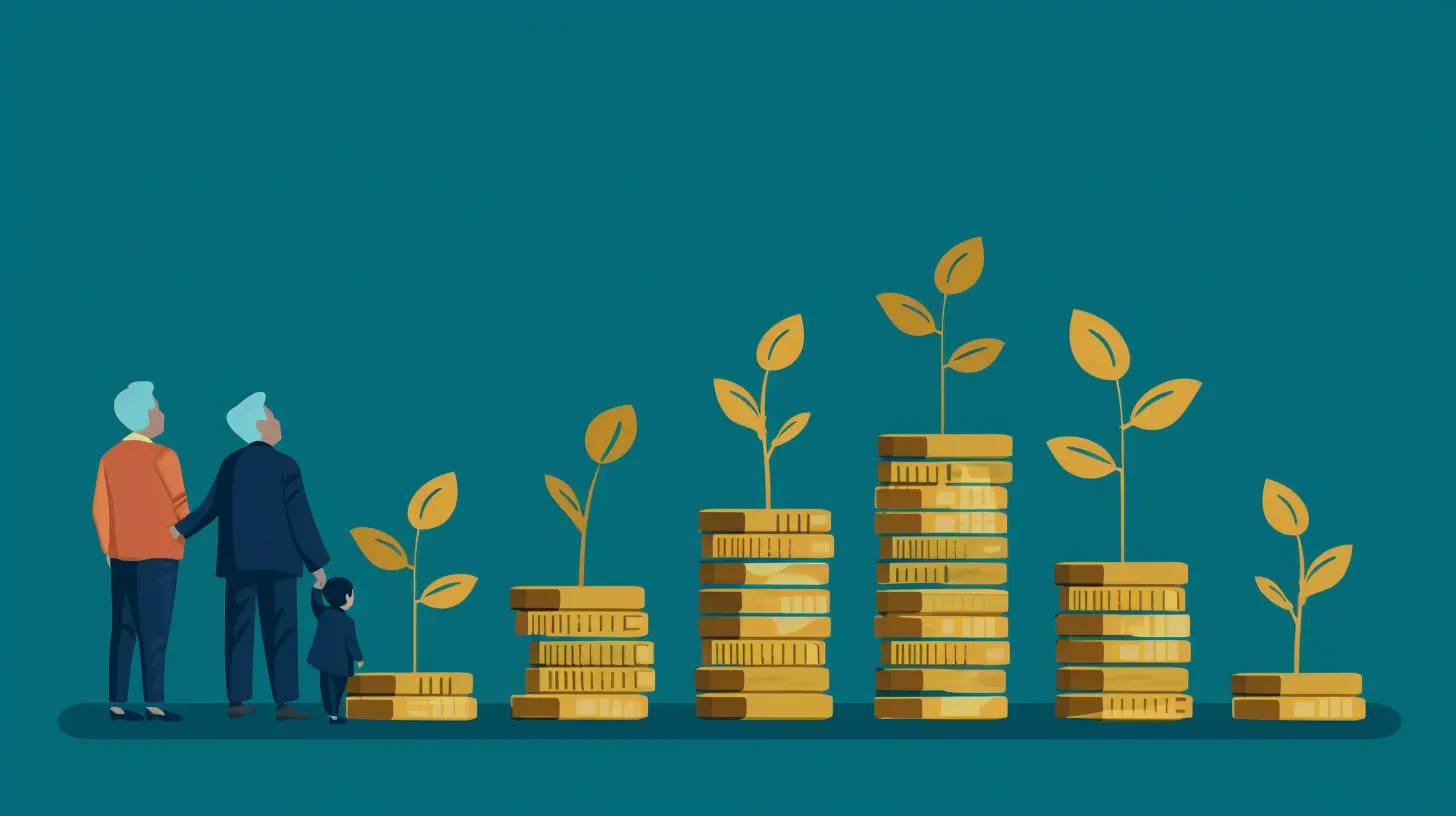The Impact of Inflation on Your Retirement Income
5 September 2025
Retirement—it’s the golden phase of life when you're supposed to kick back, relax, and finally live life on your own terms. But what happens when the cost of living starts creeping up, and your hard-earned savings don’t stretch as far as they used to? That’s where the sneaky villain of personal finance comes in: inflation.
Inflation might not seem like a big deal when you're working, but as soon as you retire and start living off your savings, it can feel like an invisible force constantly nibbling away at your nest egg. In this article, we’ll break down exactly how inflation impacts your retirement income and what you can do to fight back. 
What Is Inflation and Why Should You Care?
At its core, inflation is the gradual increase in the prices of goods and services over time. In other words, what costs $1 today might cost $1.50 in a decade. While a little bit of inflation is normal and even healthy for an economy, too much inflation can be problematic—especially for retirees on a fixed income.Think about it: If your monthly retirement budget is $3,000 today, but inflation averages 3% per year, in 20 years, you'll need over $5,400 per month just to maintain the same lifestyle! That’s why understanding inflation is crucial for ensuring your retirement savings last as long as you do. 
The Sneaky Way Inflation Eats Your Retirement Savings
Inflation is like a slow leak in a bucket. At first, it might not seem like a big deal, but over time, it can significantly reduce the purchasing power of your savings. Here are a few ways inflation can impact your retirement finances:1. Your Fixed Income Loses Value
If you're relying on a pension or annuity that pays a fixed monthly amount, inflation can erode its value over time. What seemed like a generous payout at retirement can feel significantly smaller after a couple of decades.2. Rising Healthcare Costs
As you age, healthcare inevitably becomes a bigger part of your budget. The problem? Medical expenses tend to increase faster than general inflation. That means even if you’ve saved for healthcare costs, you might still fall short.3. Everyday Expenses Keep Climbing
Food, housing, transportation—everything gets more expensive over time. Even if you own your home outright, property taxes, maintenance, and utility costs will continue to rise, putting added pressure on your savings.
How Much Inflation Should You Expect?
A common rule of thumb is that inflation averages around 2-3% per year. But here’s the kicker—some years, inflation can spike much higher (like we've seen recently), making it even harder for retirees to keep up.For example, if inflation averages 3% per year, prices will double every 24 years. That means if you retire at 65, by the time you reach 89, everything could cost twice as much!
And if inflation jumps to 5%, prices double in just 14 years. That’s a scary thought for anyone who plans to stretch their savings for three decades or more! 
How Can You Protect Your Retirement Savings from Inflation?
Now that we’ve established inflation as the villain of your retirement story, let’s talk about how to outsmart it. Here are some solid ways to inflation-proof your retirement income:1. Invest in Stocks and Growth Assets
While the stock market can be volatile, historically, it has outpaced inflation over the long run. Consider keeping a portion of your portfolio in stocks, mutual funds, or exchange-traded funds (ETFs) to help your money grow.2. Consider Inflation-Protected Investments
Ever heard of Treasury Inflation-Protected Securities (TIPS)? These government-backed bonds are designed to keep pace with inflation, ensuring your savings don’t lose purchasing power over time.3. Social Security Adjustments
The good news? Social Security benefits are adjusted for inflation each year through Cost-of-Living Adjustments (COLA). While these adjustments help, they often don’t fully keep up with real-world inflation, so you'll still need additional strategies.4. Delay Social Security Benefits
Speaking of Social Security, if you wait until age 70 to start claiming, your monthly benefit will be higher—helping you cover increased costs later in retirement.5. Diversify Your Retirement Income
Instead of relying on a single income source, consider different streams like:- Rental income
- Part-time work (if you enjoy it)
- Dividends from investments
- Passive income from businesses
6. Manage Your Spending Wisely
One of the simplest ways to combat inflation? Smart budgeting. Track your expenses and look for areas where you can cut back without sacrificing your quality of life.Will Inflation Ever Stop?
Short answer? No. Inflation is a natural part of any growing economy. However, it ebbs and flows—some years it's high, and others it's barely noticeable. The key is being prepared so inflation doesn’t catch you off guard and wreak havoc on your retirement plans.Final Thoughts
Inflation might be the sneaky thief that slowly chips away at your retirement savings, but it doesn’t have to ruin your golden years. By investing wisely, diversifying income sources, and planning for rising costs, you can ensure that you maintain your financial security well into your later years.Remember, retirement should be about enjoying life, not worrying about money. So, take charge of your finances today and build a resilient retirement strategy that stands the test of time—and inflation!
all images in this post were generated using AI tools
Category:
Retirement IncomeAuthor:

Audrey Bellamy
Discussion
rate this article
1 comments
Darrow Roberts
Understanding inflation's impact empowers you to safeguard your retirement. Stay informed and proactive to ensure a more secure financial future!
September 17, 2025 at 11:21 AM

Audrey Bellamy
Thank you for your insightful comment! Staying informed about inflation is indeed crucial for maintaining retirement security.


